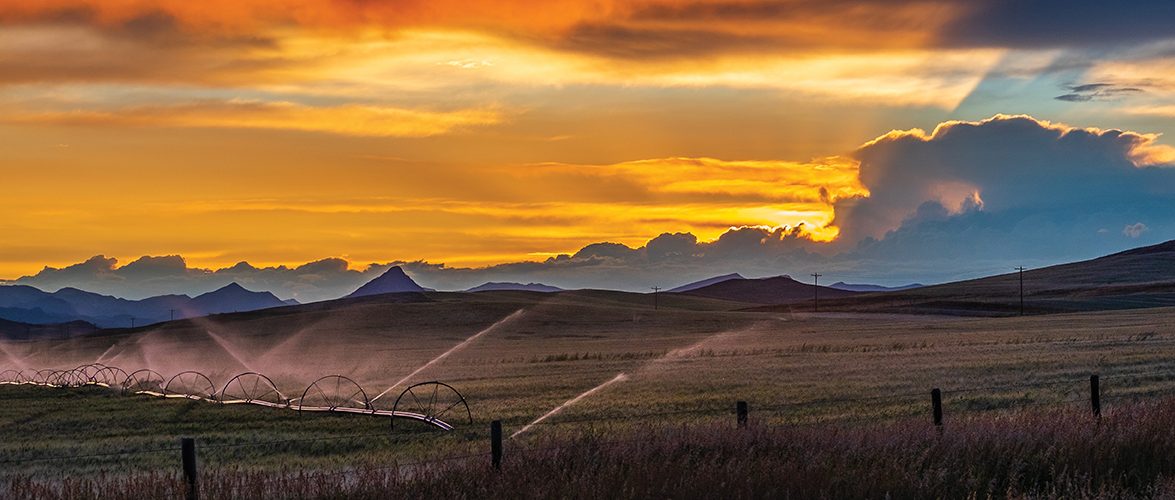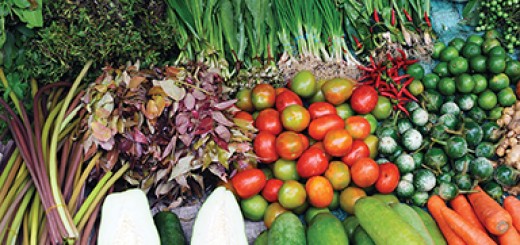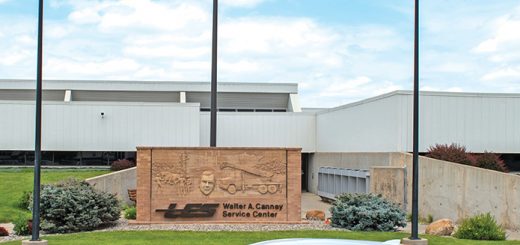Water for Food Global Institute Expanding its Mission Locally & Globally

by Daugherty Water for Food Global Institute
One in nine people in our world go to bed hungry each night, according to the U.N. World Food Program. That’s 795 million people on the planet who do not have access to enough nutritious food to lead healthy lives.
To feed our growing world, food production will have to increase by 70 percent to meet the needs of nearly 10 billion people in 2050, while the amount of water and arable land will remain the same as today. Additionally, other major global drivers, such as climate change, urbanization and increasing demand for more-water intensive agricultural products are altering landscapes, increasing soil erosion, and degrading the water resources and soils in important food producing regions around the world. Ensuring we have enough quality food, and the water needed to grow it, is one of the most urgent challenges of our time.
This is why the Daugherty Water for Food Global Institute at the University of Nebraska was established, to leverage expertise and knowledge in Nebraska and elsewhere, drawing on the more than 110 Faculty Fellows from a spectrum of specialties from across the University system, 18 Global Fellows, visiting scholars, students and a wealth of external partners.
This year, the institute’s program has produced significant outcomes through pioneering, collaborative projects and served as a convener for high-profile international knowledge-sharing events, including a Water for Food International Forum on farmer-led Irrigation held in partnership with the World Bank, the United States Agency for International Development and the United States Department of Agriculture in Washington, D.C. We also took on a leadership role in the 8th World Water Forum held in Brasilia, Brazil, where we co-organized the water for food security track in partnership with the Food and Agriculture Organization of the United Nations, and hosted a high-level panel on water for food.
From cutting-edge research using drones to capture real-time crop moisture data, to smart water meters that inform farmers of the energy costs of irrigation, the institute has developed and supported several innovations to advance water and food security. We have also shared policy research and best practices, as shown in a new publication we co-authored with the Environmental Defense Fund that provides a toolbox of resources and case studies on water management solutions. We’re also building capacity through educational opportunities for the next generation of water and food security leaders, such as the Nebraska field study course we offer in partnership with IHE Delft, The Netherlands, students from Nebraska and countries around the world who are enrolled in the “Land and Water Development for Food Security” master’s program.
Particularly with a challenge of this scale, tangible impacts can take years to achieve. But we are proud that DWFI is making a difference through focused research, education, collaboration and communication. That progress is possible because of the generosity of the Robert B. Daugherty Foundation and other donors, the guidance of our board of directors, and the involvement of partners who share our vision for a water and food secure world.
Smart Technology for Smart Water Management
Recent UNL graduates Ellen Emanuel and Caleb Milliken wasted little time getting their hands dirty working at DWFI. This spring, Ellen, Caleb and a few partners began installing the first of 73 custom-developed smart energy water meters to help farmers better manage energy and water use in agriculture, potentially saving costs in addition to conserving water. The pilot project is a partnership between DWFI and Smart Water Metering, a Canadian start-up company. Through the project they are equipping farmers across Nebraska and the High Plains with meters that measure real-time energy and water use for individual irrigation pumps.
Dozens of farmers agreed to participate in the project, receiving free energy meters which provide data and insights they can use to monitor and manage their water inputs. Wyoming farmer Scott Tietmeyer said, “I’m intrigued by what we’ll find with this project. At first I had no interest in this, but after I was challenged, I started to think about it and decided to find out.”
Currently, the duo is working to collect, analyze and visualize data the meters collected in the 2018 irrigation season. They hope the data will be useful for researchers and farmers alike. Ellen and Caleb acknowledge that weather and unreliable cellular data networks in rural areas pose challenges for data collection.
“We’ve had a rollercoaster of a ride with lots of ups and downs in all aspects, which has taught us to be more flexible. Our best laid plans often fall through with weather changes and other unforeseen challenges, while our greatest successes come from short-notice field trips,” said Ellen.
These experiences have also become learning opportunities. To address the data communications challenges, they’ve partnered with UNL’s Raikes’ School of Computer Science and Management. In addition to working with the school’s students on data logging, the young researchers hired a student intern to help pore through the data, looking for points and patterns that could be important to farmers.
“I am very excited to look at the data we receive from the meters,” said Caleb. “The value of water is something that is hard to identify and understanding the energy cost to pump groundwater is a huge key in appreciating the actual value.”
Ellen has appreciated the project’s tangible connection to water and food security.
“Overall I’ve really enjoyed being out in the fields and working with my hands. It feels like we’re working to improve water security, one meter at a time.”




Recent Comments